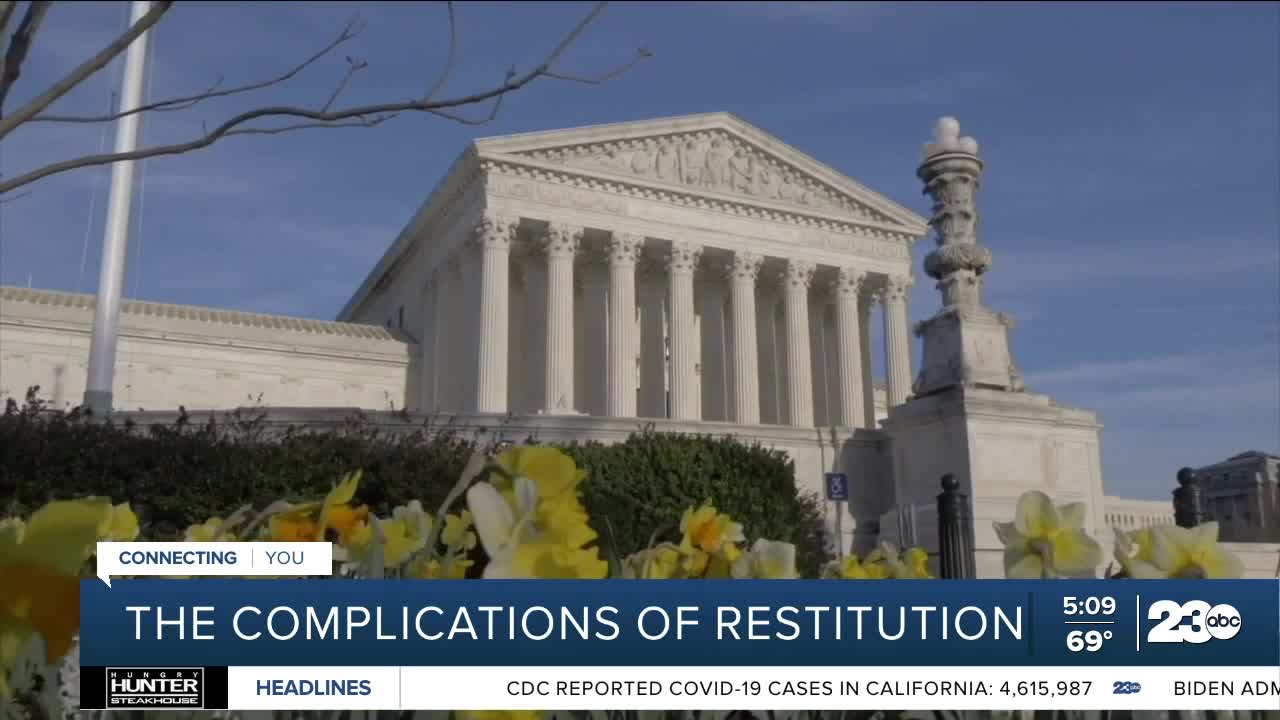BAKERSFIELD, Calif. (KERO) — Almost a year after a judge ordered a restitution payment, one Bakersfield man says he hasn't received a dime and he's not the only victim to face the same situation.
When a criminal is convicted of a crime and ordered to pay restitution, what follows tends to be a struggle for the victim to collect, especially if the order comes from a financial or property crime as opposed to a violent crime.
“She was taken to court and the judge told her that she was supposed to be making payments, and she hasn’t made a payment yet,” said Jose Patino. “She embezzled and she spent that money, and now she has no way of paying me back.”
Patino has been fighting an uphill battle for 17 years. In 2004, he and his then-wife filed for divorce. During the process, they maintained a client trust account of over $888,000 from a property sale with former attorney Barbara Harris, who was in charge of managing that account for the couple.
However, he noticed funds missing from the account.
In 2016, Patino reported the situation to the California State Bar. Four years later Barbara Harris was disbarred, pleading no contest to felony embezzlement charges. According to the state bar, Harris misappropriated $368,000 from the fund and she was ordered to pay $370,000 in restitution to the Patinos.
Unfortunately, a scenario like this is all too common when it comes to court-ordered restitution. What’s meant to give victims of crimes some sense of “payback” usually results in more burden.
As prosecutors and victims' rights advocates will tell you, that order is just a piece of paper.
“I think if you’re looking at the majority of cases most victims' goal of collecting restitution goes unfilled,” said Mariam El-menshawi.
El-menshawi is the Director and Principal Attorney at McGeorge School of Law, Victims of Crime Resource Center. She’s worked with hundreds of victims to understand their rights in legal proceedings and says restitution often leaves the burden on the victim.
“There seems to be a gap, once restitution is ordered. We need to be as a system a little more aggressive or proactive about collecting that restitution,” El-menshawi said.
When an individual is on probation or parole, failure to make restitution payments could result in revocation or arrest. However, prosecutors say if the defendant is unable to financially make payments they can’t be punished in a criminal court.
Prosecutors say it can be difficult to prove otherwise. In that case — this leaves the burden of collecting restitution on the victim to seek a civil judgment, meaning even more legal fees.
“They really feel like a second-class citizen in the process and unfortunately that continues after the case has concluded in their experience trying to collect restitution and failing to do so,” El-menshawi said.
Victims of violent crimes can seek some reimbursement through the state’s Victim Compensation Fund.
In Patino’s case, as a victim of a financial crime by his attorney, he was able to qualify for reimbursement from the Client Security Fund. However, he only received $100,000, less than a third of what he’s owed.
In other financial or property crimes such as burglary or car theft, there’s no other security measure for victims to receive payments.
“That doesn’t mean that the victim shouldn’t be asking for restitution because if that person inherits money or ins the lottery, then that person can collect,” said El-menshawi. “So down the line, the victim may be able to collect that restitution.”
Jose says after all these years, he was happy to see the truth come out, but ultimately he’s felt let down by the system over and over again.


